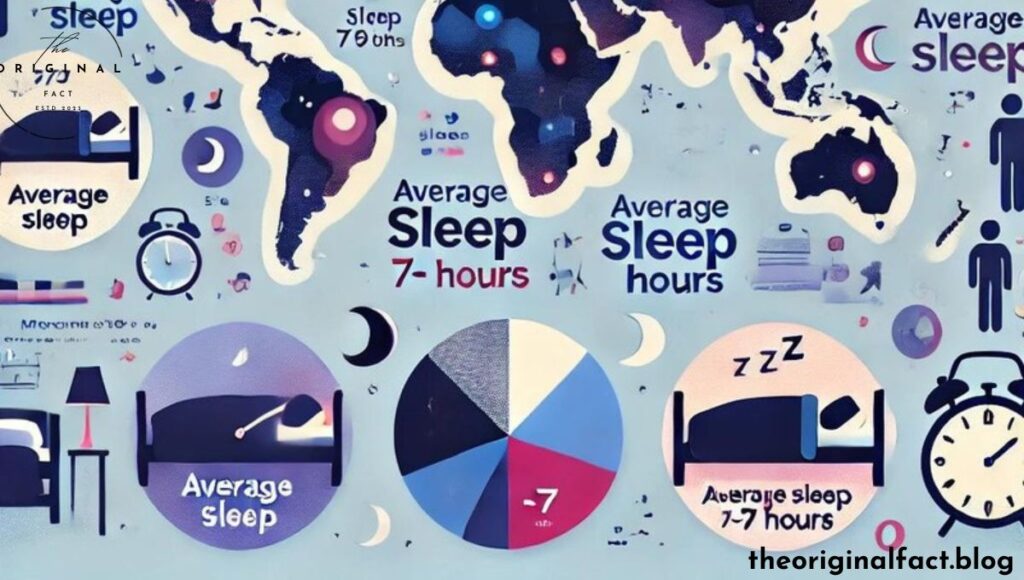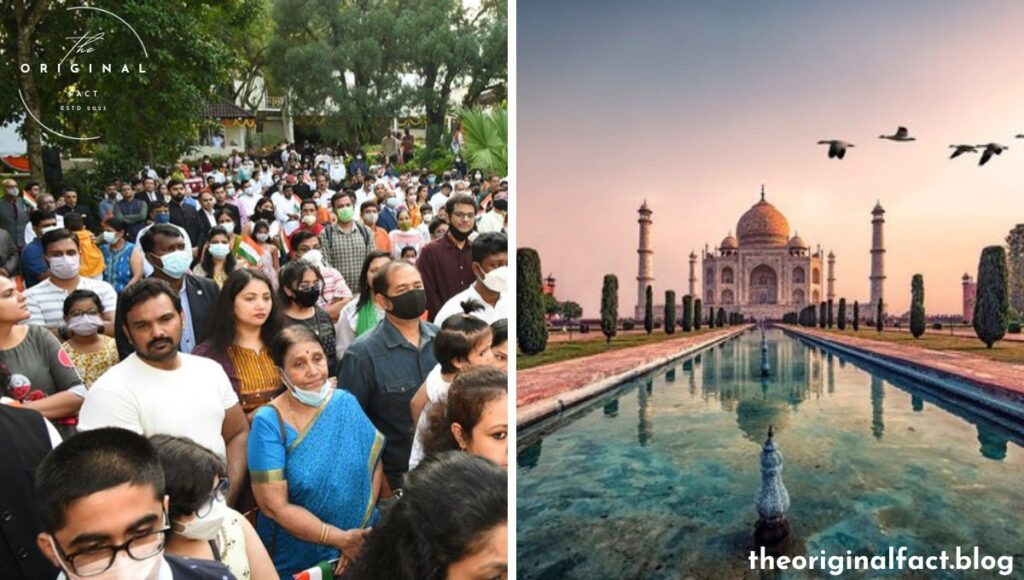Table of Contents
Global Sleep Patterns
Sleep is a critical pillar of human health and has a considerable impact on both cognitive and physical functions in humans. However, global sleep patterns and human sleeping habits vary significantly across the world due to different cultural, environmental, and socio-economic factors. With the knowledge of such sleeping facts and global trends on sleep, including the effects of low sleeping hours, it may thus serve in assessing states of well-being and productivity across populations. This present article, therefore, draws a line between countries that get most and least sleep and identifies factors contributing to these differences in sleeping hours.

Understanding Global Sleep Patterns
Global Sleep Patterns: Sleep is an important universal need, there are tremendous differences in the amount and quality of sleep both country to country and within cultures. This is partly due to genes and partly lifestyle, work schedules, cultural norms, and even climate.
In recent years, various studies and surveys were done to measure and contrast different sleep patterns of people across countries. These findings expose some interesting differences; some sleep much more than others. This coming of differences is not trivial curiosities but rather with far-reaching impacts on public health, productivity, and overall quality of life.
Countries with the Most Sleep
Several studies have identified countries that consistently sleep more than the average Global Sleep Patterns. Consistently, these are nations with very strong social safety nets, focusing on work-life balance and putting an emphasis on rest and relaxation within their culture.
1. The Netherlands
The Dutch are often considered to be the best-rested people in the world, with the average in the Netherlands at 8 hours and 12 minutes per night. Perhaps this is something to do with progressive work policies in the country, such as flexible working hours and a general cultural attitude that looks out for personal well-being rather than relentless productivity.

2. New Zealand
New Zealanders do get a healthy amount of sleep, with an average of about 8 hours and 7 minutes nightly. This most probably is because of the emphasis on outdoor activities and a balanced lifestyle. A lot of parts of New Zealand have relatively low light pollution, which also favors better sleep quality.

3. France
The French take their sleep quite seriously, and the average amount per night in France is about 8 hours and 6 minutes. Generally speaking, the country works fewer hours per week than many other developed nations; and there is very much a cultural emphasis on free time-leisure time: long lunch breaks, lengthy vacation time, etc.

4. Australia
Australians average about 8 hours and 4 minutes of sleep per night. The outdoorsy lifestyle and appreciation for physical fitness of the country tend to be a good influence on bedtimes. Also, their somewhat short workweek and appreciation for a decent work-life balance make sure they get enough rest time.

5. Belgium
The country of Belgium sees an average of 8 hours and 3 minutes of sleep per night. Much of the reason behind this has to do with Belgium’s strong social services, moderate work hours, and an emphasis on family time.

Countries with the Least Sleep
On the other end of Global Sleep Patterns, some countries report decidedly shorter average sleep time. These countries often face severe levels of stress, backbreaking work regimes, and strong cultural patterns that place the demands of work and social commitments ahead of rest.
1. Japan
Japan is normally viewed as the country that sleeps the least. The average time a Japanese spends in sleep is approximately 6 hours and 35 minutes per night. This sleep deficiency is more induced by over-demanding work ethics, long commutes, and societal pressures that see the show of commitment to work a bit more than self-well-being.

2. South Korea
South Koreans also sleep less than the global average, with about 6 hours and 41 minutes nightly. This sleep debt is because of highly competitive educational opportunities and long working hours. Extended after-hours socializing and business networking into the night also commonly reduce sleeping time.

3. Saudi Arabia
In Saudi Arabia, An average Saudi Arabian sleeps for 6 hours and 49 minutes each night. The sleeping culture of the people is attributed to cultural and religious influences like socializing at late night, sleeping during noon, which interferes with the normal cycle of sleep.

4. India
India’s sleeps an average of about 6 hours and 55 minutes every night. Contributing factors associated with the low average include long work hours, stresses of daily life in densely populated urban areas, and late-night television watching.

5. Singapore
In fact, Singaporeans have an average of approximately 7 hours per night, falling marginally short from the global average. The brisk pace of life, long workplace hours, and high levels of light pollution make this city-state sleep less.

Factors Influencing Sleep Patterns
From the above table, it is evident that there are many factors affecting the sleeping patterns of people from different countries. Some are as follows:
1. Cultural Attitudes
Sleep patterns have been influenced more culturally. For instance, in Japan and South Korea, hard work and perseverance at all costs-even in the sacrifice of sleep-is culturally underlined. Contrasting European countries place a high value on leisure and personal time, which corresponds to longer sleep lengths, such as in the Netherlands and France.
2. Work Schedules
Workweek lengths and flexibility in work hours determine the quantity of sleep received. Countries that have shorter workweeks and more flexible hours include Australia and France; these countries tended to have higher average sleep durations.
3. Technology and Light Pollution
Technology use, especially before retiring, and light pollution can also predispose to poor sleep. In urban areas like Singapore and Japan, places with a high artificial light have lower qualities of sleep. While there are countries that have less light pollution like New Zealand which may report favorable sleep quality.
4. Climate
Sleep can also be related to the climate of a country. That is, very hot or very cold countries are likely to have disrupted sleep when compared to countries with moderate temperatures.
Conclusion
Global patterns of sleep reflect a complex interaction of cultural, environmental, and socioeconomic factors. While some countries are afforded the good fortune of great sleep due to favorable work-life balances and culturally attuned attitudes toward rest, others struggle under the strains of sleep deficits driven by grueling work cultures and societal pressures. A deeper understanding of these global sleep patterns will inform public health initiatives aimed at improving sleep quality and, by extension, the general well-being of populations worldwide. By learning from countries that sleep better, other nations can start to implement practices and shift cultural norms in support of better rest towards healthy, happy citizens. Read More About Global Sleep Patterns: Click Here
To Read More: Click here

